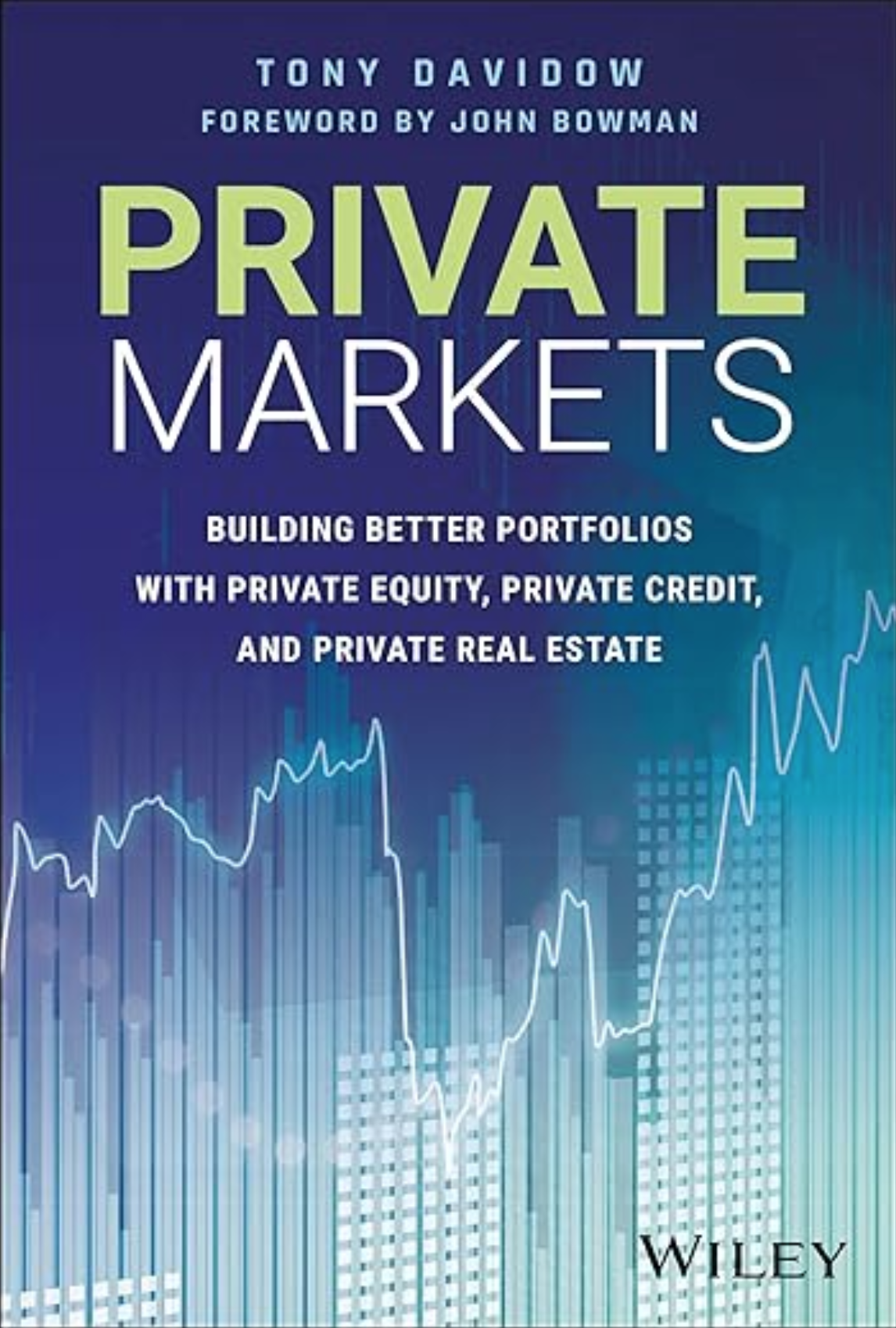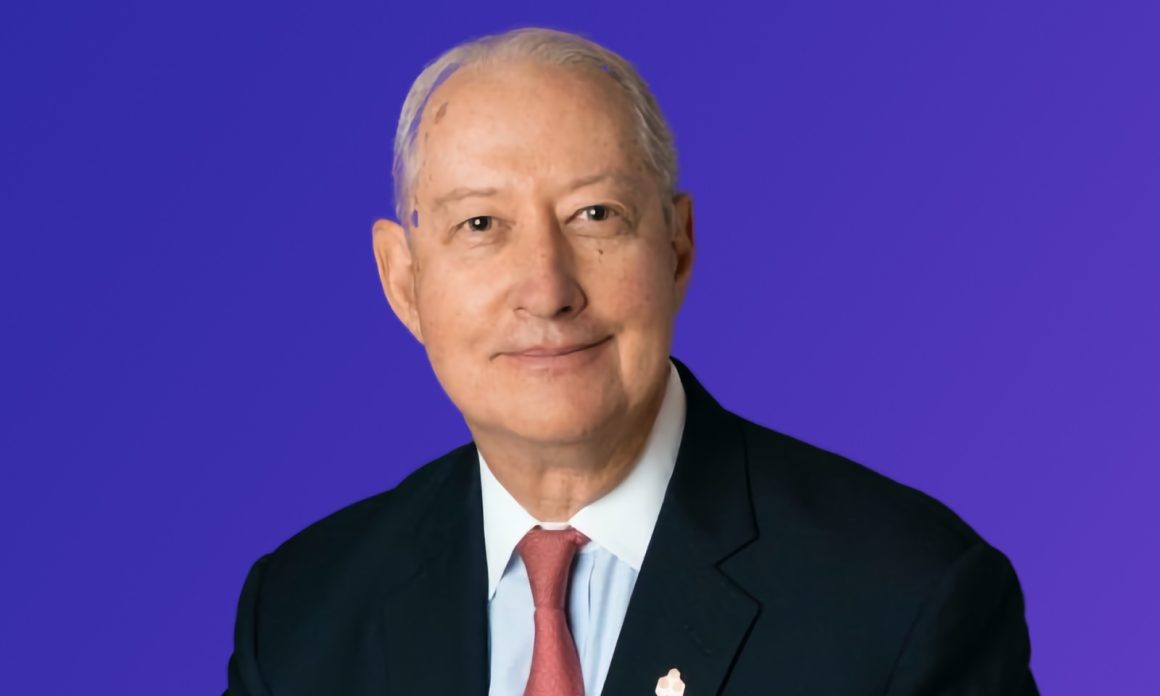For once, Tony Davidow found himself on the other side of the microphone.
 In a special episode of Franklin Templeton’s Alternative Allocations1 podcast, longtime producer Julia Giordano flipped the format to interview Davidow—Senior Alternatives Investment Strategist at the Franklin Templeton Institute and author of the newly released Private Markets: Building Better Portfolios with Private Equity, Private Credit and Private Real Estate. The result? A refreshingly personal and practical conversation that reveals not just why private markets are gaining ground—but why advisors can’t afford to sit this one out.
In a special episode of Franklin Templeton’s Alternative Allocations1 podcast, longtime producer Julia Giordano flipped the format to interview Davidow—Senior Alternatives Investment Strategist at the Franklin Templeton Institute and author of the newly released Private Markets: Building Better Portfolios with Private Equity, Private Credit and Private Real Estate. The result? A refreshingly personal and practical conversation that reveals not just why private markets are gaining ground—but why advisors can’t afford to sit this one out.
Let’s get one thing straight: this isn’t just another finance book tour. It’s a call to arms.
"Still Early—But Not Optional Anymore"
Davidow gets right to the point.
“Roughly, the allocation to alternatives has been five to six percent for two decades,” he says. “If aspirationally, we believe that 20 percent is the right number... we’ve got a long ways to go.”
And yet, he remains optimistic. His message? It’s not too late. In fact, it’s just getting started. “Nobody’s too late to the dance,” he emphasizes.
But there’s a catch. While investor interest in alternatives is growing, many advisors still hesitate—often because they don’t feel confident in how to explain or use these investments.
“It’s not a nice-to-have anymore,” Davidow warns. “Clients... are demanding that advisors either have [alternatives] on their menu or can explain to them why they don’t.”
A Career Built Around Long-Term Thinking
Davidow’s passion for private markets isn’t theoretical—it’s rooted in decades of experience.
He got his start at a New York-based family office where private equity and real estate weren’t add-ons—they were core. “We thought of it as patient capital,” he recalls. “We knew in the long run we would likely be rewarded more richly than in the traditional public markets.”
From there, he moved on to Morgan Stanley, where he worked with institutions, multifamily offices, and entrepreneurs—all of whom leaned heavily on alternatives. Eventually, he even joined a private equity-backed startup himself. Each stop along the way added new perspective, but all pointed in the same direction: private markets play a critical role in building stronger, longer-lasting portfolios.
“I saw the value and the freedom that [entrepreneurs] had in managing a young company from an idea into a viable business,” he says. “And I saw what private equity can do in helping to unlock some of that value.”
Why This Book—and Why Now?
This is Davidow’s second book. The first, focused on goals-based investing, laid the groundwork for advisors who wanted to understand how wealth management was evolving. But it only scratched the surface. “I always expected to write the second book,” he says. “I just didn’t know when.”
The answer came from the field.
After countless advisor conversations—on stage, in meetings, on the road—Davidow realized short-form content wasn’t cutting it anymore. “Writing a white paper and producing a podcast is great... but it’s not the whole story,” he says.
His new book aims to fill that gap. It’s designed for the curious advisor—whether they’re already deep into alternatives or just beginning to explore them. It offers frameworks, case studies, and accessible language to help advisors not only understand these asset classes, but confidently explain them to clients.
And it deliberately avoids the jargon.
“We tend to fall into the jargon. We talk about things like illiquidity and the J-curve,” he says. “Helping [investors] just understand really what we’re talking about... that’s the goal.”
From Advisor Tools to Future-Proofing
Davidow didn’t initially join Franklin Templeton to stay. Hired for a one-year education project, he was supposed to build out an alternatives training program for advisors.
“But about halfway through the assignment,” he says, “the firm recognized that there was a real need. This isn’t a one and done sort of thing.”
Now a permanent member of the Franklin Templeton Institute, Davidow spends his days creating educational content—white papers, blog posts, podcasts—all grounded in advisor questions. He’s on the road 40 weeks a year, listening, teaching, and distilling what the advisory world really needs to know about alternatives.
“I don’t sleep like a normal person does,” he jokes. That might explain how he cranked out a 300-page manuscript in just a few months.
Where It’s All Going
The final stretch of Davidow’s book looks ahead—to where private markets might go next. He sees more granularity, more hybrid products, and more widespread use in places like retirement plans.
“What happens when [private markets] start to become more broadly available in retirement plans?” he asks. “We’ll see tools that integrate multiple strategies and become even more relevant for individual investors.”
And while he’s clearly bullish on the future, he’s just as passionate about the kind of advisor who will thrive in it.
“The lifelong learners,” he says. “They’re constantly looking: how can I improve? How can I do a better job serving the needs of my clients? I think those lifelong learners are going to really enjoy a book like this.”
If You’re an Advisor, Here’s the Bottom Line
This isn’t about a trend. It’s about a shift.
With access improving, top-tier managers stepping into the wealth channel, and client demand heating up, private markets are no longer a niche—they’re becoming a baseline expectation. And Davidow isn’t just telling advisors to catch up—he’s handing them the roadmap.
“We’re still in the early innings,” he says.
So if you’re still on the sidelines, maybe it’s time to grab a glove. The game’s on.
Footnote:
1 Tony Davidow. Alternative Allocations “Episode 23: One on One with Guest Tony Davidow, CIMA® | Alternatives By FT." 28 May. 2025
2 Tony Davidow. Book. "Private Markets: Building Better Portfolios with Private Equity, Private Credit and Private Real Estate"
Copyright © AdvisorAnalyst















